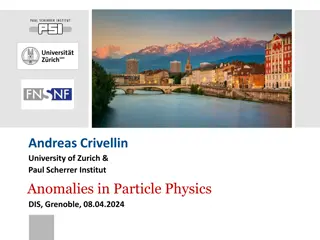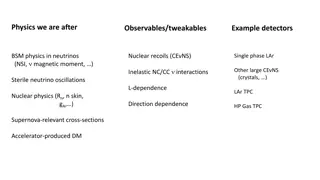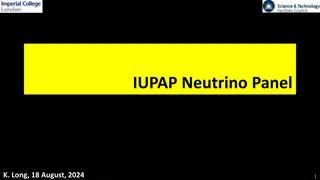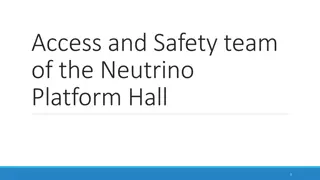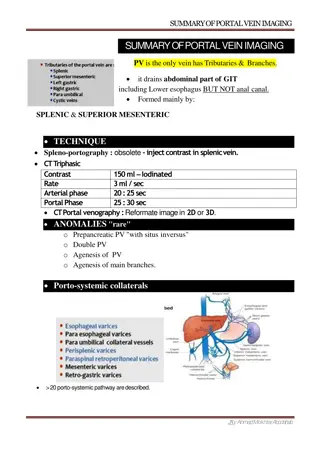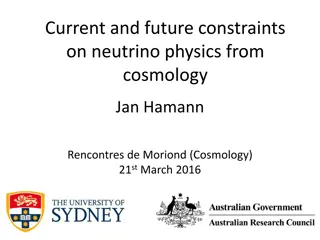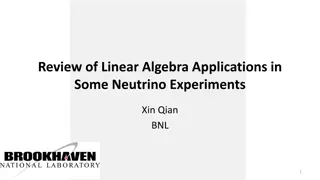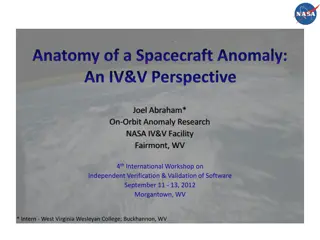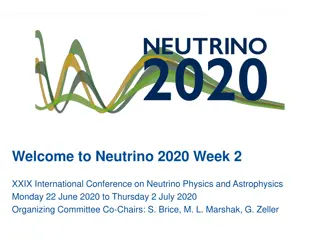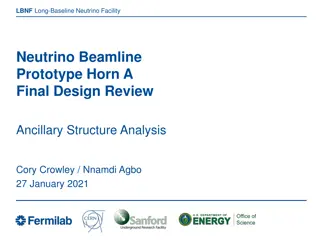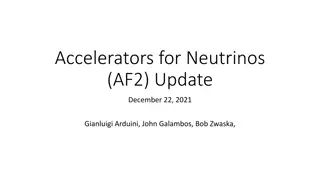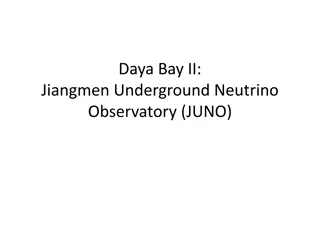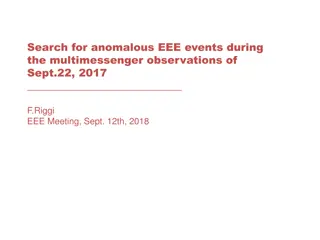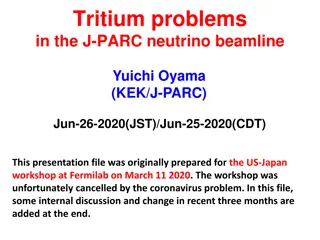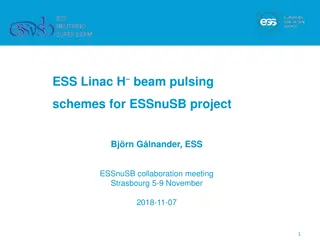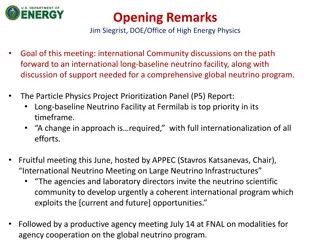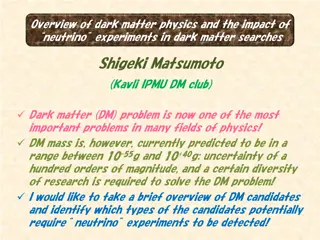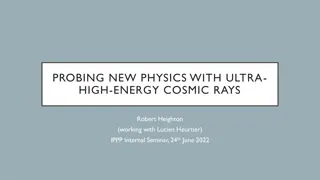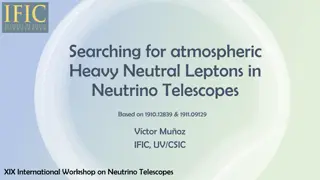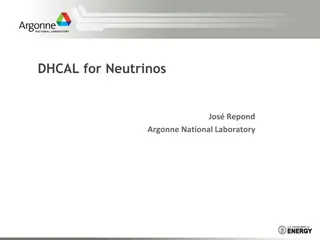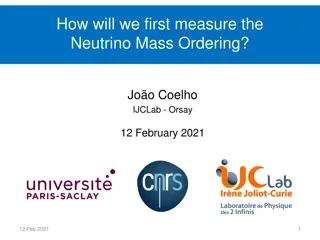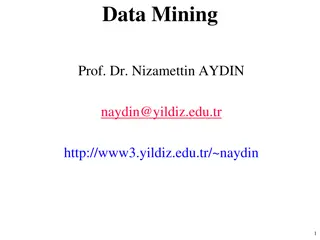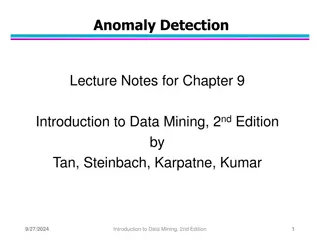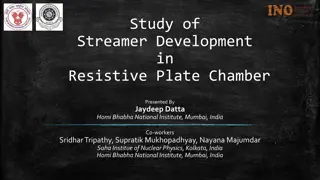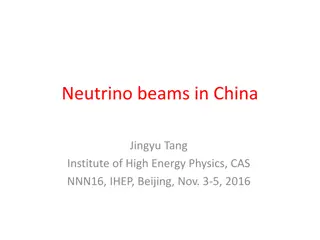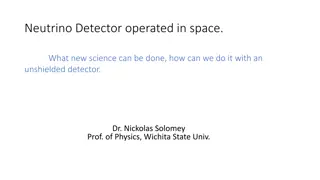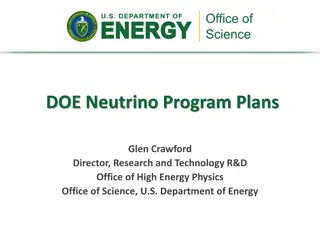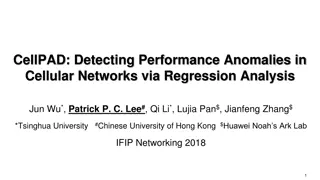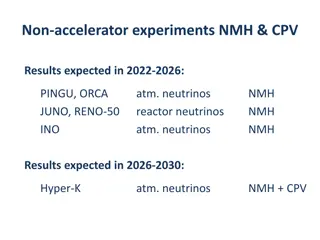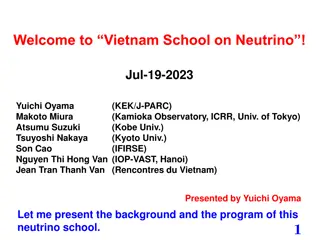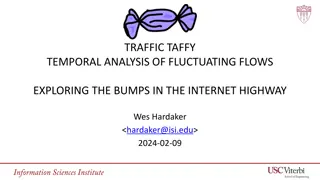Understanding Gravitational Anomalies and Interpretation Challenges
Gravitational anomalies pose an inverse problem in determining characteristics of underlying bodies. Surface gravity values provide insights into geometric shape, dimensions, density contrast, and depth. Interpreting anomalies requires integrating gravimetric analysis with other geological data. Cal
5 views • 62 slides
Anomalies in Particle Physics: Discoveries and Implications
Explore the intriguing anomalies in particle physics discussed by Andreas Crivellin, shedding light on phenomena like the anomalous magnetic moment of the muon, X17 particle, and neutrino anomalies. Discover the latest research findings and potential implications for the future of physics.
2 views • 42 slides
Understanding Anomalies in Law and Ways to Rectify Them
This presentation sheds light on the anomalies in W.P. Land Revenue Rules, 1968 and HCROs, discussing their formation, effects, and types. It explores how anomalies in law impact justice, highlighting reasons behind their development and probable forms. The content emphasizes the importance of addre
6 views • 18 slides
European Strategy Update: Progress and Future Plans for DUNE Collaboration
The European Strategy Update in 2013 identified the long-baseline neutrino program as a key objective, leading to the formation of the DUNE collaboration. The upcoming update in 2020 aims to prioritize DUNE in the European neutrino program. The collaboration involves global partners aiming to addres
5 views • 12 slides
Anomalies of Kidneys and Factors Affecting Renal Function in Veterinary Pathology
An overview of anomalies affecting the kidneys in animals, including ectopic kidney location, renal agenesis, renal aplasia, and renal hypoplasia. The images illustrate anomalies such as fused kidneys and duplication of kidneys, with explanations of occurrence and sequelae. Additionally, factors aff
0 views • 13 slides
Exploring Neutrino Physics and Beyond with Observables and Detectors
Delve into the realm of neutrino physics, nuclear recoils, and other phenomena like sterile neutrino oscillations using detectors such as BSM and single-phase LAr inelastic NC/CC interactions. From NSI to Supernova-relevant cross-sections and accelerator-produced DM, this research journey covers a w
0 views • 5 slides
Evolution of the ICFA Neutrino Panel: A Journey Towards International Collaboration
The ICFA Neutrino Panel, established in 2013, has made significant contributions to the accelerator-based neutrino program. Through consultations with global neutrino communities and international meetings, the Panel has crafted a roadmap for future programs, emphasizing the complementarity of exper
1 views • 12 slides
Neutrino Detectors for NuStorm: Physics Goals and Detector Requirements
Physics goals for neutrino detectors in the NuStorm project include measuring exclusive neutrino cross sections, supporting long baseline programs, searching for sterile neutrinos, and improving measurements. Detector requirements involve reconstructing neutrino interactions, providing charge and pa
0 views • 21 slides
Neutrino Interactions with Liquid Argon at DUNE Near Detector Complex
The Deep Underground Neutrino Experiment (DUNE) aims to study neutrino oscillations using high-precision measurements with detectors like the Near Detector complex located downstream of the neutrino beam. Components such as ND-LAr and SAND play crucial roles in scanning energy spectra. SAND, a perma
0 views • 16 slides
Neutrino Platform Hall Access and Safety Guidelines
Guidelines for accessing and ensuring safety within the Neutrino Platform Hall at CERN, including registration, permissions, safety trainings, required equipment, online trainings, access points, and safety team responsibilities. Access is granted through registration at CERN, completion of safety t
1 views • 7 slides
Portal Vein Imaging Techniques and Anomalies Overview
Portal vein imaging is crucial for evaluating conditions affecting the abdominal part of the gastrointestinal tract. Techniques such as spleno-portography and CT triphasic contrast imaging are used to visualize the portal vein and diagnose anomalies like portal-systemic collaterals and porto-systemi
4 views • 7 slides
Neutrino Mysteries Unveiled: Current Cosmological Constraints
Delve into the enigmatic world of neutrinos with a focus on their elusive properties like mass hierarchy, additional light neutrinos, and impact on cosmic background. Explore the unresolved questions surrounding neutrino physics from cosmological perspectives.
0 views • 29 slides
Linear Algebra Applications in Neutrino Experiments
Linear Algebra plays a crucial role in various neutrino experiments, enabling solutions in weighted least squares, energy estimation in EXO-200, and signal processing in LArTPC detectors. From Cartesian coordinates to minimizing uncertainties, linear algebra techniques contribute significantly to da
0 views • 38 slides
On-Orbit Anomaly Research at NASA: Causes and Solutions
On-Orbit Anomaly Research (OOAR) at NASA's IV&V Facility involves studying mishaps related to space missions, identifying anomalies, and improving IV&V processes. The research delves into the causes of anomalies, such as operating system faults, and proximate causes like software deficiencies. Detai
0 views • 20 slides
Neutrino 2020: International Conference Highlights
Explore the diverse experiences at Neutrino 2020, featuring plenary talks, poster sessions, virtual reality interactions, and engaging discussions via Slack. Learn about the block schedule, additional talks, and the online conference format with Q&A opportunities and poster competitions. Don't miss
0 views • 8 slides
Ancillary Structure Analysis for Long-Baseline Neutrino Facility Horn Prototype
The ancillary structure analysis for the Horn A prototype at the Long-Baseline Neutrino Facility involves detailed documentation tracking, FEA projects, and design considerations such as conductor stiffness and spider loading. The analysis approach includes rigorous documentation and peer review pro
0 views • 25 slides
Accelerators for Neutrinos Update: Latest Developments and Future Plans
Updates from the AF2 program on accelerator capabilities for neutrino physics, including community workshops, white papers, and plans for further development. Discussions on current needs, development areas, and collaborations with artificial neutrino sources. Focus on PIP-II exploitation and enhanc
0 views • 5 slides
Exploring the Daya Bay II: Jiangmen Underground Neutrino Observatory (JUNO)
Delve into the Daya Bay II project, encompassing the Jiangmen Underground Neutrino Observatory (JUNO), which secured a substantial funding commitment from the Chinese government. With construction slated to commence in 2015 and the first physics data expected by 2020, this ambitious venture has garn
0 views • 13 slides
Anomalous EEE Events During Multimessenger Observations
On Sept. 22, 2017, a high-energy neutrino event was observed by the IceCube Neutrino Observatory, potentially associated with a blazar. A search for anomalous EEE events during this period identified active telescopes and investigated coincident events. The significance of N-fold coincidences was di
0 views • 20 slides
Tritium Problems in J-PARC Neutrino Beamline - Recent Developments and Future Implications
This file discusses the issues related to tritium production in the J-PARC neutrino beamline, particularly focusing on the tritium release from steel walls to cooling water and air. It highlights the concerns regarding potential serious problems in the future and the measures undertaken to address t
0 views • 16 slides
ESSnuSB Project - Linac Upgrade for Neutrino Beam Generation
Explore the ESSnuSB project's linac upgrade featuring beam pulsing schemes and modifications, aiming to provide an additional 5 MW of beam power for neutrino generation. The upgrade options, pulse structure, beam parameters at 2.5 GeV, and different pulsing schemes are detailed with images and descr
0 views • 10 slides
International Efforts for Long-Baseline Neutrino Facility
International discussions are underway regarding the establishment of an international long-baseline neutrino facility and the need for comprehensive global support. The P5 report emphasizes the urgency of forming a new international collaboration to design and execute a Long-Baseline Neutrino Facil
0 views • 4 slides
Overview of Dark Matter Physics and Neutrino Experiments
The search for dark matter (DM) is a crucial challenge across various physics fields due to the wide range of predicted masses and uncertainties. DM candidates include stable, neutral, cold, and weakly interacting particles, with potential types like axions, SIMP-like, and WIMP-like DM. Neutrino exp
0 views • 9 slides
Unraveling the Mysteries of Ultra-High-Energy Cosmic Rays and Neutrinos
Delve into the exploration of ultra-high-energy cosmic rays and cosmogenic neutrinos in the quest to uncover new physics phenomena. Examining the GZK limit, cosmic accelerators, detection methods, and the potential for detecting tau neutrinos in Earth, this seminar presents a comprehensive overview
0 views • 28 slides
Exploring Heavy Neutral Leptons in Neutrino Telescopes
Atmospheric Heavy Neutral Leptons are being studied in neutrino telescopes to search for GeV Heavy Neutral Leptons, with a focus on their production in cosmic showers, flux at detectors, and signals from decay. Research explores minimal and non-minimal scenarios, revealing opportunities to probe a w
0 views • 9 slides
Challenges and Opportunities in DHCAL Technology for Neutrino Experiments
Funding cuts have impacted DHCAL activities for neutrino research, leading to limited progress. However, there is interest in utilizing existing technology for neutron yield measurements and muon energy evaluations. Efforts include addressing neutron interactions, optimizing materials, and revamping
0 views • 15 slides
Advancements in CATIROC Technology for Neutrino Observatories
CATIROC is a smart readout ASIC developed for experiments like JUNO, a neutrino observatory. With applications in photon counting, energy measurement, and data processing, CATIROC offers advanced features such as charge and time measurements, digital data conversion, and trigger outputs for improved
0 views • 20 slides
Late-Time Neutrino Emission Impact on DSNB Study
Explore the implications of late-time neutrino emission on the Diffuse Supernova Neutrino Background (DSNB) through core collapse supernovae simulations. The research delves into the dynamics of neutrino emission in different phases of supernova events and its relevance to understanding the DSNB.
0 views • 15 slides
Exploring Neutrino Mass Ordering and Its Implications
Delve into the world of neutrino mass ordering, from the methods of measurement to the significance of Normal versus Inverted Ordering. Discover how determining the mass hierarchy impacts our understanding of physical interactions, cosmology, decay processes, and more. Uncover the latest updates on
0 views • 25 slides
Understanding Anomaly Detection in Data Mining
Anomaly detection is a crucial aspect of data mining, involving the identification of data points significantly different from the rest. This process is essential in various fields, as anomalies can indicate important insights or errors in the data. The content covers the characteristics of anomaly
0 views • 50 slides
Anomaly Detection in Data Mining: Understanding Outliers and Importance
Anomaly detection is crucial in data mining to identify data points significantly different from the norm. This technique helps in recognizing rare occurrences like ozone depletion anomalies. Understanding the distinction between noise and anomalies is key, as anomalies can provide valuable insights
0 views • 35 slides
Study of Streamer Development in RPC for Neutrino Observatory Experiment
India-Based Neutrino Observatory (INO) aims to study neutrino properties using experiments like ICAL with RPCs. This work focuses on simulating streamer probability in RPCs using eco-friendly gas mixtures to replace R134a. Various simulation tools are employed to model streamer behavior and primary
0 views • 14 slides
Overview of Neutrino Beams in China: MOMENT Study Progress and Potential
The MOMENT study, initiated in 2013 in China, focuses on muon-decay medium baseline neutrino beam facility development. Using a Continuous Wave (CW) proton linac, the project aims to achieve 15 MW beam power for neutrino cross-section measurements and CP phase study. Recent progress includes the suc
0 views • 28 slides
Exploring Neutrino Science in Space with Unshielded Detector - Opportunities and Innovations
The deployment of a neutrino detector in space presents a unique opportunity to conduct groundbreaking scientific research, leveraging the intense neutrino flux closer to the Sun. Key areas of focus include studying rare fusion neutrinos, observing neutrino oscillations during spacecraft transitions
0 views • 11 slides
Neutrino Program Plans and Recommendations by U.S. Department of Energy
The U.S. Department of Energy's Neutrino Program outlines significant changes and recommendations to pursue neutrino mass physics. These plans include international collaboration, short and long-baseline experiments at Fermilab, and the selection of small-scale experiments to address beyond the thre
0 views • 9 slides
Detecting Performance Anomalies in Cellular Networks via Regression Analysis
The study focuses on detecting performance anomalies in cellular networks using regression analysis. It addresses challenges such as labeling, rare anomalies, and correlated factors. The tool CellPAD is introduced for anomaly detection, supporting various prediction algorithms and offering insights
0 views • 19 slides
Overview of Non-Accelerator Neutrino Experiments and Programs
Non-accelerator experiments in the field of neutrino physics are expected to yield significant results between 2022 and 2030. Projects like PINGU, ORCA, JUNO, RENO-50, INO, Hyper-K, and DUNE aim to study neutrino mass hierarchy, CP violation, and non-oscillation phenomena. The design and constructio
0 views • 10 slides
Vietnam Neutrino School Overview
Vietnam School on Neutrino is an annual event started in 2017 to promote experimental neutrino physics in Vietnam. Led by Prof. Jean Tran Thanh Van, the school focuses on lectures, software and hardware training, group works, and excursions. With a mix of students from various countries, the aim is
0 views • 7 slides
Exploring Traffic Anomalies with Traffic Taffy: Network Operators' Challenges
Discover how network operators tackle odd anomalies in internet traffic with Traffic Taffy, a tool that aids in temporal analysis of fluctuating flows. Current solutions and specific problem spaces are discussed, alongside insights for comparing anomalies against baselines and defining the problem s
0 views • 24 slides
Understanding Neutrino Mass, Mixing, and Flavor Symmetries
Neutrino physics involves studying mass, mixing, and flavor symmetries, which present new challenges when dealing with multiple neutrinos. The discussion includes neutrino states, mixing matrices, flavor content, vacuum mixing, standard parametrization, mixing angles, global fits, and the Tri-bimaxi
0 views • 59 slides

